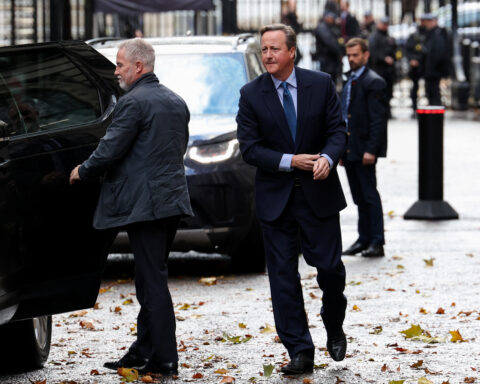Bulgaria’s Foreign Ministry gave permission to Russian Foreign Minister Sergei Lavrov’s plane to cross its airspace en route to North Macedonia’s capital, Skopje, so he can attend a meeting of the Council of Ministers of the OSCE this week, sparking an immediate outcry from Ukraine and other nations who will boycott the gathering.
The European Union, of which Bulgaria is a member, imposed a blanket flight on Russian planes over the bloc’s territory on February 27 last year, three days after Moscow began its unprovoked invasion of Ukraine.
Bulgaria’s decision, announced late on November 27, came at the request of North Macedonia, which currently holds the rotating presidency of the OSCE.
Less than 24 hours later, Ukraine’s Foreign Ministry spokesman Oleh Nikolenko said Foreign Minister “Dmytro Kuleba will boycott the OSCE ministerial meeting over the decision to allow Lavrov to attend” the November 29-December 1 event.
Soon after that, the Baltic nations of Estonia, Latvia, and Lithuania said in a joint statement that they would not take part in the annual meeting in Skopje as well because of the Lavrov decision.
“We deeply regret the decision enabling the personal participation of Russian Foreign Minister S. Lavrov at the 30th Session of the OSCE Ministerial Council in Skopje. It will only provide Russia with yet another propaganda opportunity,” the statement said.
“Lavrov’s attendance at the OSCE Ministerial also risks legitimizing aggressor Russia as a rightful member of our community of free nations, trivializing the atrocious crimes Russia has been committing, and putting up with Russia’s blatant violation and contempt of the OSCE fundamental principles and commitments,” it added.
In June, several Balkan nations refused to open their airspace to Lavrov, forcing him to cancel a trip to Serbia.
Lavrov, who has been placed under sanctions by the United States, the European Union, the United Kingdom, and Canada, called the move “unthinkable.”





